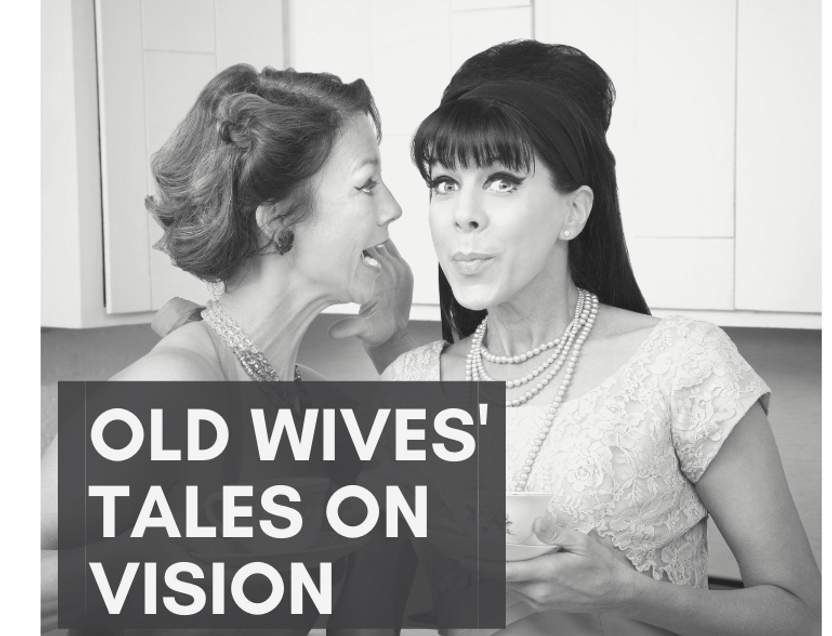Old Wives’ Tales About Vision
Posted by amess on Oct 2nd 2020
At some point in our lives, we’ve heard old wives’ tales about “dos and don’ts” on topics related to our health. In this post we take a closer look at myths related to vision and whether there’s any truth to them.

1- Reading in the dark will cause long-term damage to your vision.
False: We’ve all been warned in our childhood to stop reading in the dark, or we run the risk of losing or damaging our vision. This is thankfully false! When you read in dim lighting, you may develop a headache or eye strain, but neither is permanent. Our advice – skip the headache and turn an extra light on while reading.
2- Children with misaligned or crossed-eyes will “grow out” of these eye health issues.
False: These eye health conditions will not correct themselves over time. A doctor must be involved to force the eye into its correct place using patching, glasses, eye drops, or surgery if necessary. It’s recommended that these procedures be done when the child is still young.
3- If you cross your eyes on purpose, they can get stuck that way.
False: Your eyes will not stay in that position. They will naturally go back into place once you focus on something else.
4- You don’t have to wear sunglasses on cloudy days.
False: Your eyes are at risk of UV (Ultra-Violet) damage even on cloudy days. UV damage can cause an array of eye health issues. According to the US National Library of Medicine National Institutes of Health, 40–50% of total UV damage occurs before the age of 20, so make sure your children are wearing sunglasses as well!
5- Eating carrots will improve your eyesight.
False: This old wives’ tale seems to be the most popular and widely believed. While carrots contain beta-carotene and Vitamin A (both vital nutrients for retinal health), neither are specifically tied to improved vision. They can even do the opposite if you take more than the recommended amount of these nutrients.
Although there is no one ingredient that helps improve vision, an antioxidant called zeaxanthin has been proven to protect the delicate cells responsible for crisp, clear vision from the harmful effects of certain light sources, such as the sun and digital screens. Zeaxanthin is found in leafy greens like kale, spinach and broccoli and brightly colored fruits and vegetables like corn, bell peppers, and paprika peppers.
Learn more about zeaxanthin and its benefits for eye health by watching What is Zeaxanthin? Top 5 Google Questions Answered.
A little knowledge helps us be the healthiest we can be!

